The surge in smart home technology has revolutionized the way we interact with our living spaces. In 2024, the realm of smart home hubs has continued to evolve, offering users seamless connectivity, improved interoperability, and enhanced control over their connected devices.
As homes more and more integrate multiple smart home devices, selecting the right smart home hub becomes pivotal in creating a cohesive and efficient smart ecosystem. A smart home hub serves as a central control point, allowing users to manage an array of devices such as lights, locks, garage door openers, thermostats, cameras, and more.
For instance, upon locking your smart lock, a proficient smart home hub can instruct the lights to turn off and prompt the thermostat to activate its eco mode. It stands as a fundamental device in establishing an automated smart home system.
This represents merely one facet of what a capable smart home hub can achieve, yet its capabilities can vary. This underscores the importance of our assessment of smart home hubs compatible with Alexa, Google Assistant, SmartThings, and Apple HomeKit, enabling us to identify the most superior option.
In this article, we delve into the top smart home hubs of 2024, highlighting their features, compatibility, and how they’re reshaping the modern household.
Read more: Smart Home Features That Are a Must-Have for Every Room
Table of Contents
ToggleWhat is Smart Home Hub?
Smart home hubs are central devices or systems that serve as a unifying point to connect and control various smart devices within a household. These hubs act as a bridge, enabling communication and coordination among different smart devices that operate on various protocols or standards. They facilitate the integration and management of devices such as smart lights, thermostats, door locks, cameras, sensors, and more, allowing users to control and automate their functions from a single interface.
Key functions and features of smart home hubs include:
Device Connectivity: Smart home hubs support multiple communication protocols like Wi-Fi, Zigbee, Z-Wave, Bluetooth, or others, allowing them to interact with a wide range of smart devices, regardless of their native communication standards.
Centralized Control: Users can manage and control all connected devices through a single app or interface provided by the smart home hub. This centralized control enables easier monitoring, scheduling, and automation of devices.
Automation and Scenes: Smart home hubs enable the creation of automated routines or scenes, where multiple devices can be triggered simultaneously based on specific conditions or schedules. For instance, turning off lights, adjusting the thermostat, and locking doors when leaving the house.
Voice Control Integration: Many smart home hubs are compatible with popular voice assistants like Amazon Alexa, Google Assistant, or Apple’s Siri, allowing users to control their smart devices using voice commands.
Security and Privacy: Some hubs prioritize security features, implementing encryption and secure communication protocols to protect user data and maintain privacy within the smart home network.
Compatibility: They are designed to work with a wide range of third-party devices and brands, ensuring flexibility and interoperability within the smart home ecosystem.
Smart home hubs come in various forms, including standalone hub devices, smart speakers integrated with hub capabilities (like Amazon Echo or Google Nest), or software-based hubs that can run on dedicated hardware or existing devices like smartphones or computers. These hubs play a crucial role in making smart homes more efficient, convenient, and interconnected.
Quick List - Top 5 Smart Home Hubs in 2024
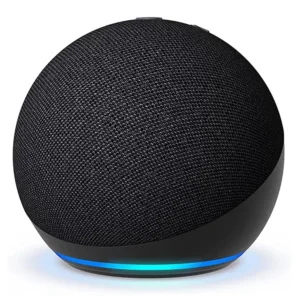
Amazon Echo
Best Overall
The Echo line of smart speakers with Alexa acted as a hub for controlling various smart devices. It supported a wide range of third-party integrations and had numerous skills available.
Read more review below
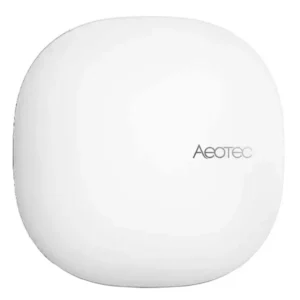
Aeotec Smart Home Hub
Best For Smartthings Hub
This hub is equipped with Wi-Fi, Bluetooth, Zigbee, Z-Wave, and Matter connectivity, extending compatibility not only to Alexa but also to Nest devices.
Read more review below
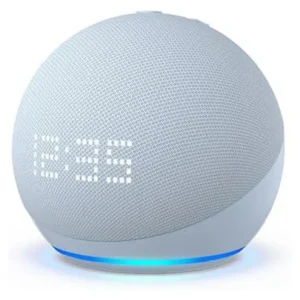
Amazon Echo Dot
Best Cheap Hub
The Amazon Echo Dot offers nearly all the features present in the full-size Echo (excluding Zigbee) at half the price, boasting an additional built-in clock feature.
Read more review below
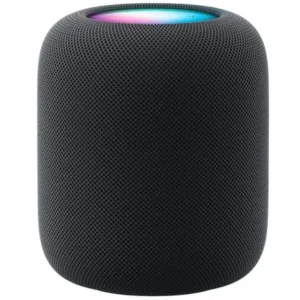
Apple Homepod 2
Best HomeKit Hub
The Apple HomePod 2 serves not only as a smart home hub with temperature and occupancy sensors but also stands out as one of the top-notch smart speakers available. However, it comes with a higher price tag.
Read more review below
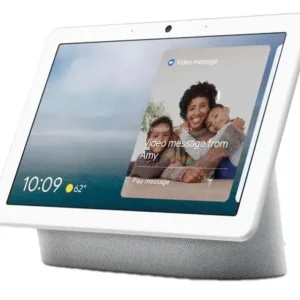
Google Nest Hub Max
Best Google Home Hub
The Google Nest Hub Max is a smart display that conveniently consolidates all your smart home controls, allowing easy access at your fingertips. Additionally, it enables you to view your video doorbell and security cameras, featuring a built-in camera for video chats as well.
Read more review below
Our Review about Top 5 Smart Home Hubs in 2024
1. Amazon Echo (4th Gen)
Best smart home hub for Alexa users
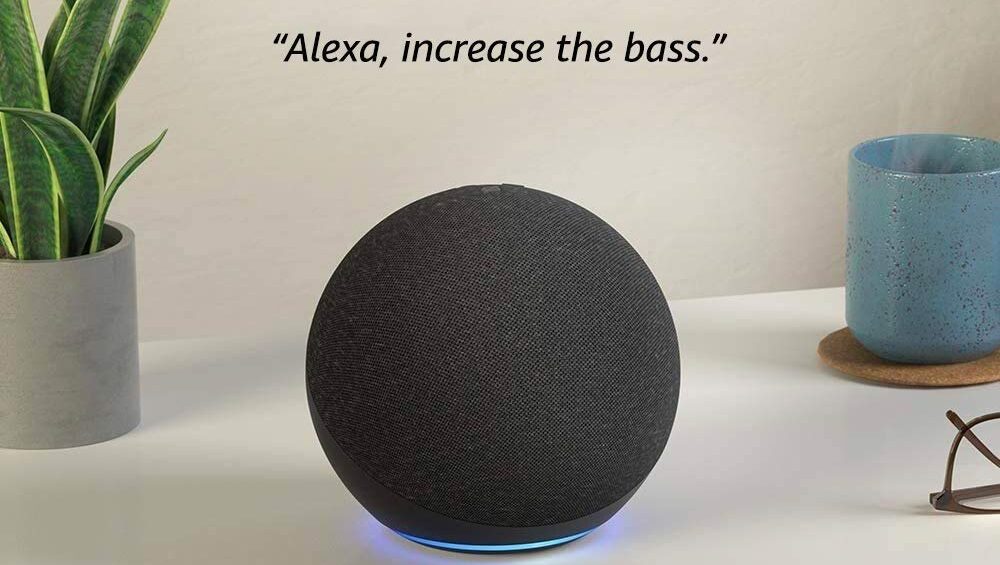
Rating
Specifications
Pros
- Incorporates Zigbee, Bluetooth LE, and Amazon Sidewalk radios
- Alexa’s extensive control over various smart home systems and devices
- Enhanced audio experience when used as a stereo pair with dual speakers
- Reasonably priced
Eye-catching spherical design - Impressive LED light ring
- Audio input/output port for versatile connectivity
- Good voice responsiveness
Cons
- Google’s Nest Audio sounds better
- Sonos supports more music-streaming services
- Lacks warmth in the midtones
Equipped with Bluetooth, Wi-Fi, and Zigbee capabilities, the Amazon Echo (4th generation) stands out as an exceptional smart home hub catering to the needs of most users. Its diverse range of radios enables seamless connections with a vast array of low-power smart home devices. The sophistication of Alexa’s routines allows users to employ various triggers for automating actions across other smart home devices.
Furthermore, the integration with Alexa Guard provides added security by listening for sounds like glass breaking or smoke alarms, triggering lights and alerting users in emergency situations. The Echo (4th Gen) also boasts extensive compatibility with numerous smart home devices, offering a comprehensive smart home solution.
The Echo of the fourth generation also provides backing for Amazon Sidewalk, an innovative low-power, long-distance networking protocol. This feature extends compatibility to devices like Tile trackers and smart lights, enabling their operation across significantly larger distances.
2. Aeotec Smart Home Hub
Best smart home hub for SmartThings
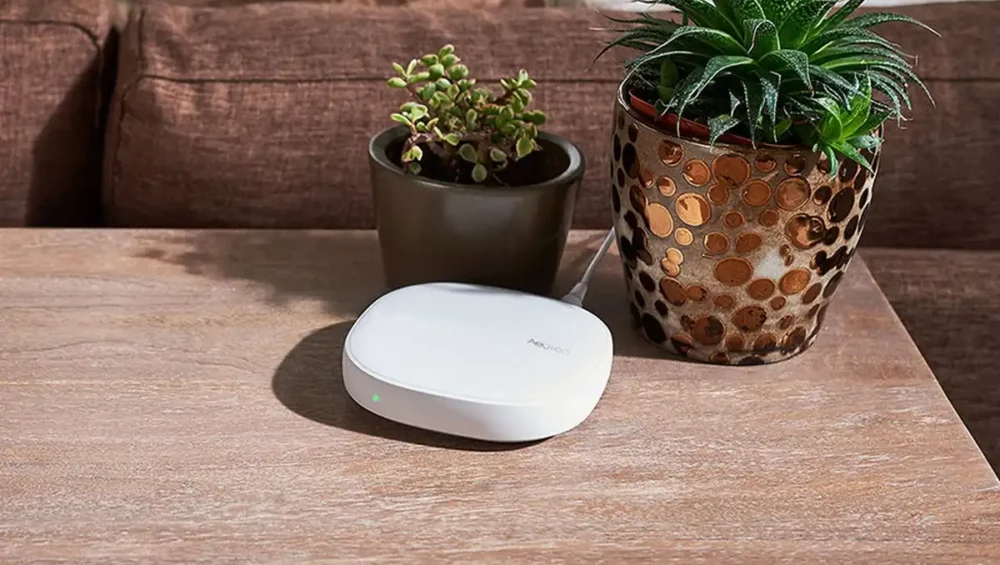
Rating
Specifications
Pros
- Compatible with Zigbee (such as Philips Hue), Z-Wave, and Wi-Fi devices
- Intuitive software interface for effortless operation
- Establishes a connection to your router via either ethernet or Wi-Fi
Cons
- Incompatibility with Apple’s HomeKit ecosystem
- Requires a broadband connection for functionality
The Samsung SmartThings hub held a prime position among our top selections for the finest smart home hubs. Its inclusion of both Zigbee and Z-Wave technologies enabled connections to a multitude of devices, surpassing the capabilities of most other hubs. Moreover, the SmartThings app boasted abundant functionalities, allowing users to craft diverse scenarios for all their home gadgets. What’s remarkable is that SmartThings now supports Nest and Matter products, rendering it a truly comprehensive smart home hub.
Regrettably, Samsung has discontinued its SmartThings Hub. To continue utilizing the SmartThings platform, users must opt for the Aeotec Smart Home Hub, which mirrors all the same functionalities. Essentially identical in hardware, it merely sports a different logo on its exterior. Our tests confirmed its performance to be equally efficient and reliable.
3. Amazon Echo Dot with Clock (5th Gen)
Best cheap hub
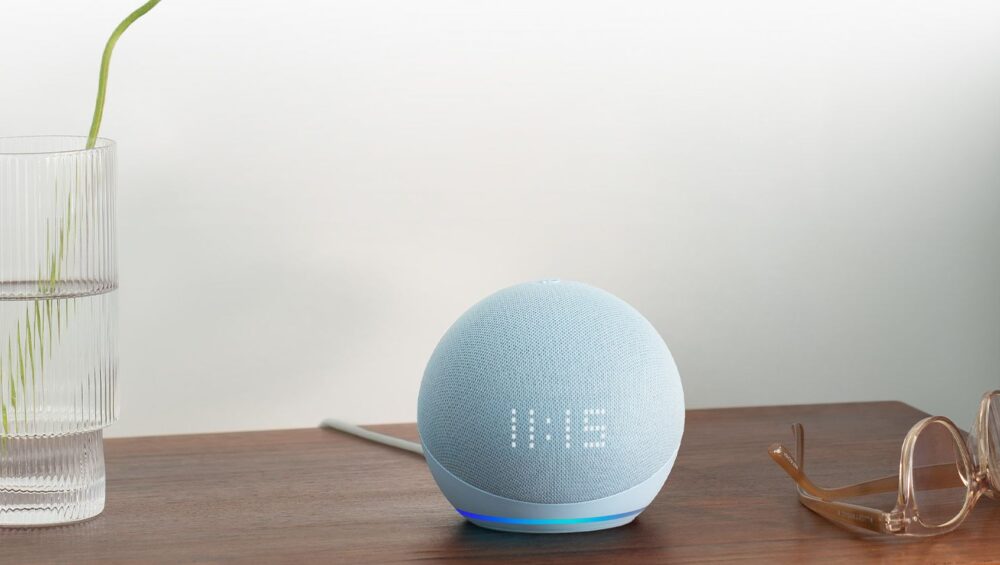
Rating
Specifications
Pros
- Improved sound quality
- Enhanced response time
- Enhanced usefulness of the clock display
- Significantly improved tap controls
- New temperature sensor proves unexpectedly useful
Cons
- Lacks an audio jack
- Clock feature comes at an additional cost
- Alexa app functionality remains subpar
- Eero Wi-Fi extension reduces speed by half
Echo Dot with Clock stands as an economical alternative among the best smart home hubs, making it a budget-friendly entry point for individuals venturing into smart home automation. While lacking Zigbee or Z-Wave compatibility, devices relying on Bluetooth or Wi-Fi connections seamlessly integrate with it. Furthermore, it supports Matter and acts as an extender when used alongside an eero mesh Wi-Fi router.
Through the Alexa app, users can craft remarkably robust routines, with the Alexa Guard feature standing out by triggering smart home devices upon detecting sounds like fire alarms or glass breaking.
For those seeking a more cost-effective option, the 5th-generation Echo Dot without the clock is priced at $49, while the flatter 3rd-generation Echo Dot, albeit older, also retails at $49.
4. Apple Homepod 2
Apple's premium smart home speaker
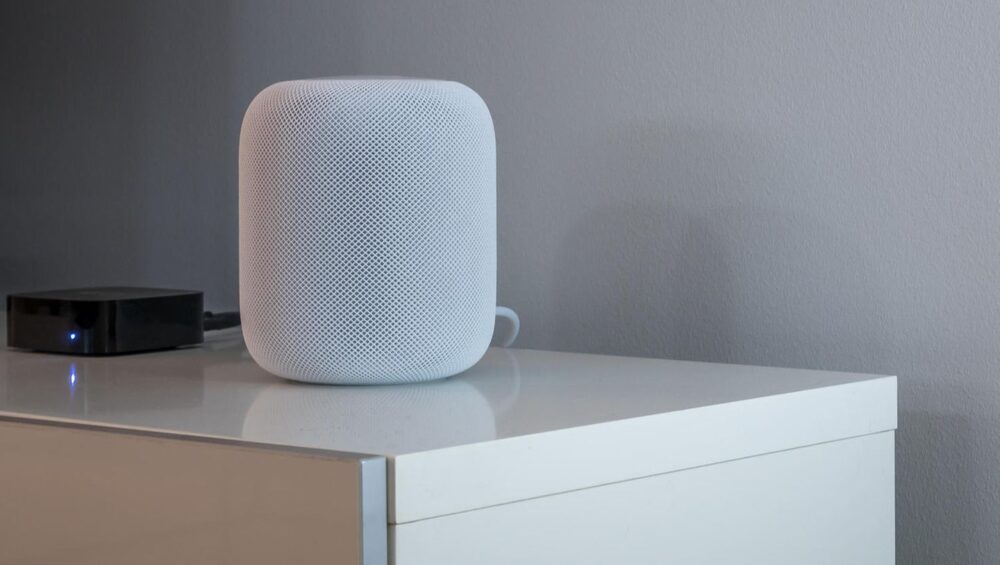
Rating
Specifications
Pros
- Natural, robust, and dynamic sound
- Spacious and immersive, especially with Atmos
- Exceptionally well-crafted design
Cons
- Primarily suited for dedicated Apple users
- Lack of Siri control for Spotify, Tidal, etc.
- Some competitors offer a more straightforward sound profile
The Apple HomePod (2nd generation) maintains a striking resemblance to its predecessor but incorporates several upgrades, ensuring its readiness for the future of smart homes. Notably, it now supports the Matter smart home standard, simplifying the process of connecting and managing a wider variety of smart home devices. Moreover, the HomePod 2 integrates temperature and humidity sensors, allowing users to create automated routines within the HomeKit ecosystem.
An update to the HomePod enables it to listen for smoke and carbon monoxide alarms, providing alerts if it detects such alarms. In terms of sound quality, our assessment found the HomePod 2 to match the original, showcasing remarkable audio performance, and securing its position as one of the top-tier smart speakers. However, its relatively steep price tag of $299 might deter individuals less invested in Apple’s ecosystem.
5. Google Next Hub Max
A remarkable smart display, but restricted smart home hub functionalities.
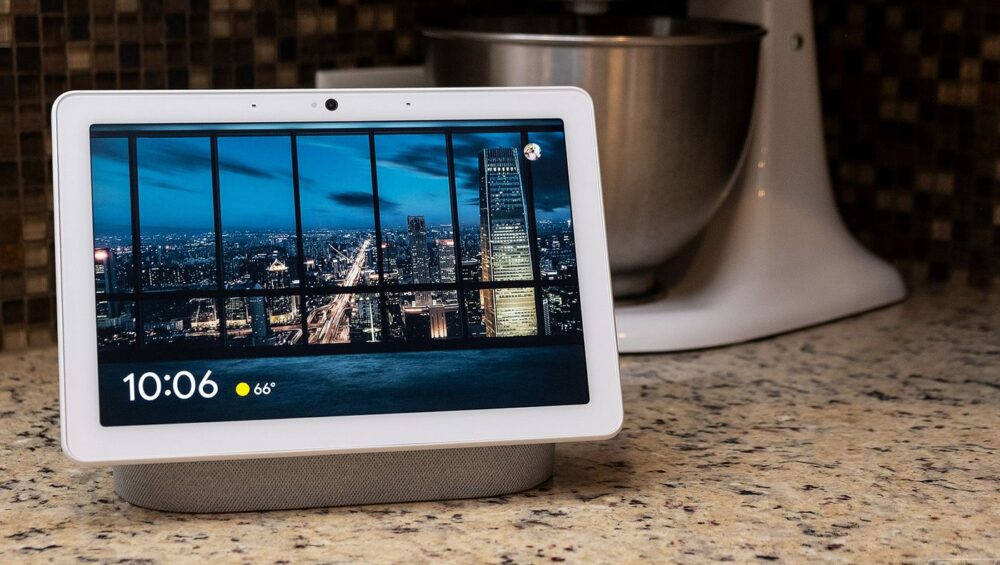
Rating
Specifications
Pros
- Impressive display
- Excellent audio output
- Diverse entertainment options
- Quality camera for video chats
Cons
- Limited smart home capabilities in Google Home
The Google Nest Hub Max stands as an exceptional smart display, featuring a generous 10-inch screen ideal for streaming YouTube, Netflix, browsing recipes, news, and more. Its dual speakers deliver powerful audio, while the 6.5MP camera excels in Google Duo video calls, even employing motion tracking as you move about the room.
In terms of connectivity, it offers Wi-Fi, Bluetooth, and Thread—a relatively recent smart home networking protocol that Google and other tech companies have been promoting for some years. The Nest Hub Max’s screen enables live viewing from compatible Google Assistant-linked home security cameras, video doorbells, and baby monitors. Additionally, on-screen controls facilitate adjustments to smart lighting levels. The breadth of devices compatible with Google Home nearly rivals those integrated with Alexa.
Google has also introduced the Google Pixel Tablet, featuring a clever dashboard for smart home controls, streamlining the management of all your smart devices. However, the Pixel Tablet lacks Thread support.
Tips for Selecting The Ideal Smart Home Hubs
When determining the right smart home hub for your requirements, consider what you intend to accomplish and control. If you have a single set of smart lights, a smart home hub might not be necessary. However, if you aim to coordinate smart lights with a smart lock—for instance, turning on lights upon the lock opening at night—a smart home hub might be essential.
For many individuals, the optimal choice for a smart home hub is the 4th Generation Amazon Echo. It allows connectivity with various smart home devices through Wi-Fi, Zigbee, Bluetooth, and Amazon Sidewalk. The Amazon Alexa app enables the creation of routines triggering smart home devices based on specific conditions, like your departure or arrival. Additionally, Alexa Guard can activate smart home devices upon hearing alarming sounds, like a fire alarm or window breaking. The Echo’s smart speaker functionality also permits voice-controlled management of smart home devices, with updated support for Matter.
For deeper integration among smart home devices, the Aeotec Smart Home Hub, compatible with Samsung’s SmartThings platform, offers a compelling option. It facilitates intricate device-to-device control and allows the creation of more advanced routines. Its user-friendly interface and upcoming Matter support make it a promising choice.
Wi-Fi, Bluetooth, Zigbee, or Z-Wave?
Wireless technology varies among smart home devices. Smaller devices like door/window sensors and motion detectors typically utilize low-power Zigbee or Z-Wave due to their minimal data transmission needs. However, they require a bridge (like a smart home hub) to connect to the internet. Larger devices, drawing from a stable power source, often rely on Wi-Fi for higher data transmission. Devices in this category include home security cameras, smart thermostats, and video doorbells.
Consider your device preferences. If they’re predominantly Wi-Fi-based, a hub like the Amazon Echo Dot coupled with the Alexa app might suffice. However, for Zigbee/Z-Wave devices, a hub capable of receiving those signals is essential.
The advent of Matter, a new connectivity standard endorsed by major tech entities like Amazon, Google, and Apple, promises simplified smart home device integration. It’s set to expand options for HomeKit users, yet not all current devices support Matter, potentially necessitating new equipment purchases for Matter compatibility.
How to Test Smart Home Hub?
We subject each smart home hub to practical testing in a real-life setting, specifically within our household. The primary evaluation criterion revolves around assessing their ease of setup, aiming for simpler comprehension for entry-level smart home users as opposed to more intricate setups geared towards advanced users.
We also scrutinize the hub’s capacity to connect with numerous devices. The utility of a hub diminishes if it lacks compatibility with a substantial range of devices.
Moreover, the pivotal aspect of any smart home hub involves gauging the level of complexity achievable in orchestrating interactions among diverse smart home devices. For instance, if a hub restricts rule creation solely based on time or voice commands, it exhibits limited functionality. Superior smart home hubs empower users to execute more intricate tasks, such as altering device statuses based on location or triggering actions in response to the activation or deactivation of other smart devices.
Our assessment focuses on exploring the depth of complexity achievable in creating these rules and routines, emphasizing both sophistication and user-friendliness in their creation. Finally, we rigorously test the devised routines to ascertain their operational efficacy and efficiency.
